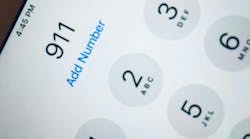When I decided to become a 9-1-1 operator/dispatcher, I knew I would undergo some changes. I had already watched my husband become a bit different after he had completed the police academy and spent some time on the streets. I had talked to current dispatchers and they alluded to the fact that this job had some consequences mentally, emotionally and physically. I felt I was prepared. In fact, after several years I did find myself commonly evolving as I became more and more a part of the telecommunications family. What I didn’t count on were some unintended consequences. Some behaviors that changed or grew from doing the work. None of them are harmful; just a little odd and nothing that I had expected. Here are five changes I never saw coming.
I ALWAYS know where I am
As days rolled into years in my job as a 9-1-1 operator, I found I became less and less patient with people who had no idea where they were. Conversations would go something like this:
Me: “9-1-1, What’s your emergency?”
Caller: “I’ve been in a car accident. No one’s hurt. We’re just in the middle of the road.”
Me: “Where are you?”
Caller: “Ummmmmm. Hmmmmm. I…I don’t know. There’s some trees around. Oh, and a sign.”
Me: sighing (hopefully) inaudibly, “What does the sign say?”
Caller: “I don’t know I can’t read it from here.”
Me: “What street were you driving on?”
Caller: “Ummmm, I think…no…maybe…it’s south of downtown.”
Me: frustrated because the jurisdiction goes 20 miles south of downtown, “Can you ask someone where you are?”
Caller: “Oh, yeah. Hun, where are we?”
Mumbling from the other seat, “University and Highland.”
Me rolling my eyes.
It never ceased to amaze me how people moved about in their lives without a clue where they were. They wouldn’t know the address of the house they were in or even sometimes their own. I’m not talking about individuals who were truly having a crisis and just were flustered in the chaos. I’m talking about people who just have no clue. So, because of the thousands of calls I took like this, I became neurotic about knowing where I was at all times. I would scan the street signs and addresses. Even if I was out in the rural areas, I would pay attention to the last address and on the highway, I always knew which mile marker I had just passed. An unintended consequence.
I wrote in code
During my tenure, I went back to school to get my bachelor’s degree. Studying justice, I got to utilize a lot of the police code shorthand that I learned at work. It is so much easier to write 415F than domestic violence or 962 instead of accident with injuries. I was so used to putting those codes down in lieu of the words it was like writing in a foreign language. I thought in those codes and even spoke in those codes. So, consequently I wrote in those codes. This wasn’t always a problem because when I was writing papers that I could edit before turning in, I could go through and remove the code. The problem happened when I was trying to answer questions on tests. I would often forget and used codes and I would get a big red questions mark back from my teacher. Apparently, code was not a language spoken by everyone.
I stopped using the bathroom when I first had to go
This is a funny consequence because it came on slowly. In the beginning of my career having to learn to hold it when I had to go was hard. I was so used to just stopping what I was doing to use the bathroom that my new life where I had to wait until a 9-1-1 call was over or for a dispatch relief to get to me was strange and created unintended bodily changes. As time went by, I learned that the first twinge of needing to go to the bathroom was really a one hour or so warning, unlike the 5 minute warning of the past. My bladder enlarged (or so I believe) and I could wait until lunch to use the restroom for the first time. If there was a particularly intense, fun event happening, like a pursuit, I could hold it indefinitely. The problem with this is that even when I wasn’t at work, I would never use the bathroom when it was available. I would just wait…and wait…and wait. Even now, I have to remind myself to just use the restroom regardless of whether I feel like I’m going to explode.
I talk too fast
Learning to get on and off the radio as quickly as possible has the intended consequence of making dispatchers speak succinctly and quickly. We give out a lot of information in a short period of time. Unfortunately, this rapid fire way of talking doesn’t stop when you walk out of the communications center. I didn’t realize how fast I had learned to talk until I was in a speech class. I got up to do my presentation, did it well within the time limit and stood in front of a group of people just staring at me. After a few moments of stunned silence, my teacher informed me that I had just given a 30 minute presentation in 10. We worked on my ability to share information verbally with non-public safety people for the rest of the semester. I still have to remind myself to slow down and speak in a normal cadence. It sounds weird to me like I’m talking under water.
I HATE to talk on the phone
The biggest unintended consequence is my absolute aversion to talking on the telephone. I detest it. I spent so many hours listening to people talk to me and being forced to talk back that I learned that once I was off duty, I had no intention of picking up a phone and talking to anybody. I still hate it.
When I became a dispatcher, I expected to become so many things. And I did. What I didn’t expect was to become a speed-talking, code-using, location-obsessed, urine-holding telephone-a-phobe. I guess it could be worse.


